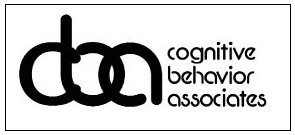Your body image has nothing to do with your physical form. It is entirely dependent on your own perception. Essentially, body image is defined by the ways you think and feel about your physical form. Let’s look at what contributes to negative body image.
What Contributes to Negative Body Image?
In some cases, a negative body image can cause unhealthy behaviors related to eating, weight, and exercise. You may even have a self-perception that is completely divorced from reality. This condition is known as body dysmorphia.
Of course, many people wonder about the origins of negative body image and body dysmorphia. These are a few of the most common factors that may contribute to a negative body image
1. Childhood Teasing
If you were bullied as a child for your physical appearance, then you may be more prone to have a negative view of your own body. While we are often told to ignore the words aimed at us, the reality is that words do have the potential to do lasting damage.
2. Family Emphasis on Appearance
When it comes to establishing early perceptions of healthy bodies, the opinions of family members carry a lot of weight.
If the adults in your household established a culture that emphasizes appearance over other qualities, then you may feel that achieving their standards is the only way to fit in, gain acceptance, and be loved.
These factors are a powerful driving force, but cognitive behavioral therapy in Los Angeles can help you begin to unwind their influence.
3. Close Relations Engaging in Dieting
As children, we learn to model our elders. We aren’t born knowing how to interact with society as fully-fledged human beings, so we learn by watching the people we love and admire.
As a result, you may pick up less desirable patterns from close relations along with all of the great things you also learned from them. Having a parent or other close relation who engages in dieting behaviors, excessive exercise, or binge eating may increase the likelihood that you will repeat those behaviors yourself.
4. Cultural Emphasis on Appearance
Some global cultures heavily emphasize physical appearance. This trend is reflected in the media, schools, and individual families.
If you are living within a culture with a heavy emphasis on appearance and a propensity to judge those who don’t meet cultural standards, then you are far more likely to struggle with your body image.
5. Peer Pressure
Teen peer pressure is always a concern with unhealthy behaviors that tend to be more dominant in teen populations.
The pressure to look attractive can prove particularly severe for teen girls. This group also remain the most likely to engage in severe dieting and other unhealthy weight-related behaviors. With that said, peer pressure could potentially affect anyone.
6. Media Influence
The influence of mass media may not be as powerful as those nearest and dearest to you. With that said, the media certainly has an influence.
In our modern world, we constantly find ourselves pelted with carefully edited images of perfect people who perfectly fit the local cultural ideal. It sets up an impossible standard that you can never achieve. This directly increases the risk of body dysmorphia.
7. Misguided Public Health Campaigns
Public health campaigns often start out well-intentioned. But the overarching message can prove harmful. Has a public health campaign attached diet or exercise to intrinsic qualities of goodness and responsibility? Then they have set up a false equation that may negatively affect your self-worth.
Handling Negative Body Image
If you find yourself struggling with an eating disorder or body dysmorphia, then it is important that you treat your mind as well as your body. Body dysmorphia treatment in Los Angeles can help you to work through the cultural and familial influences that have caused an unhealthy view of your own body.

